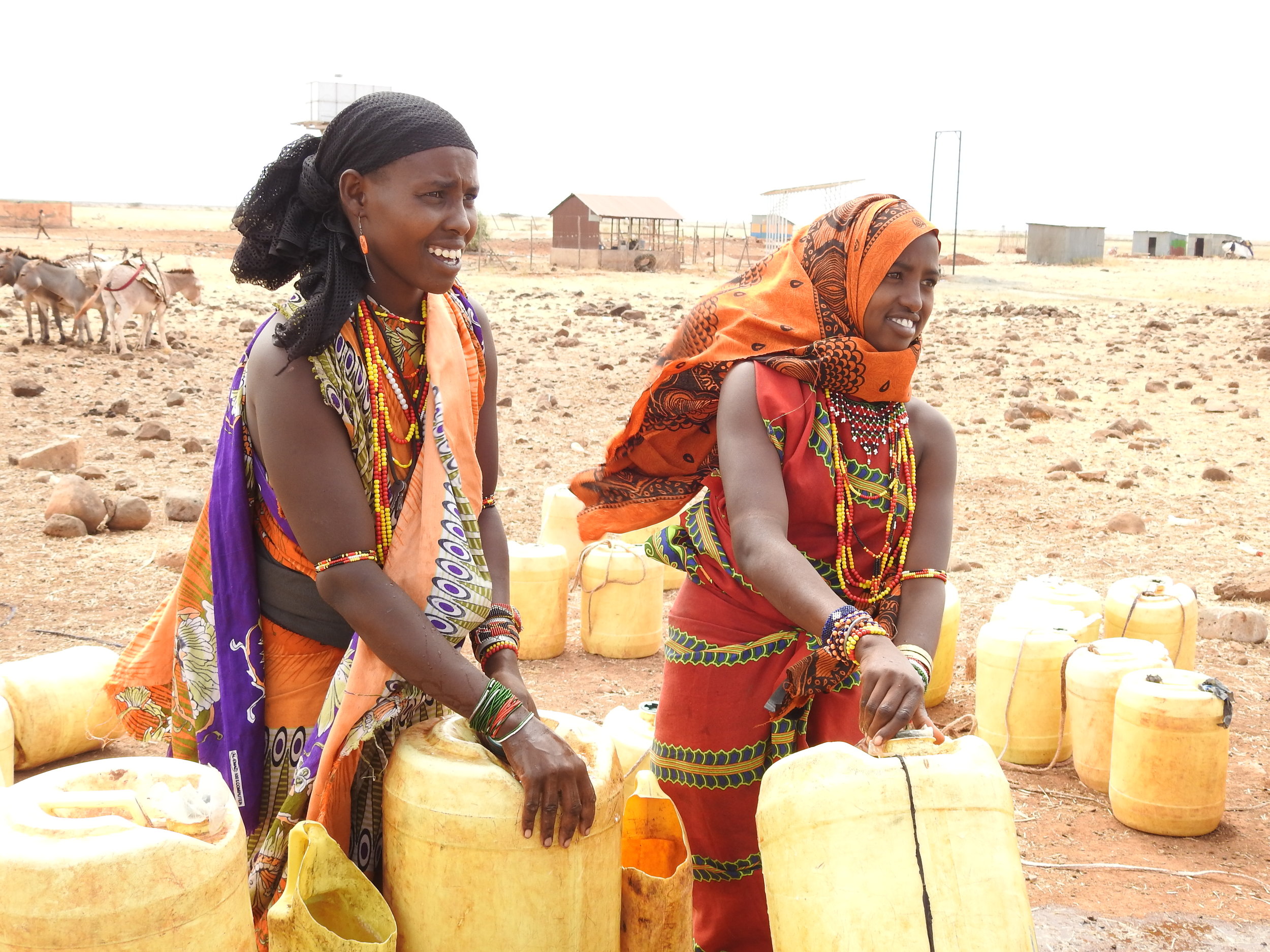In June 2018, Christian Aid Kenya Country Director John Kitui and Program Officer Nicholas Abuya spoke with us about their work to strengthen the participation of women and youth in climate change policy work.
Click here for more information about this CJRF-funded effort.
CJRF: What’s your mission?
John Kitui: Christian Aid’s mission in Kenya is to ensure that people live with dignity. We intend to eradicate poverty. We do that by empowering communities to be in the driver’s seat—to find their own way out of poverty.
CJRF: What does the CJRF funding enable you to do?
Nicholas Abuya: To scale out our pilots in Makueni and Kitui counties in terms of putting in place county climate change fund legislation. This model really benefits [and empowers] vulnerable communities. Vulnerable communities, particularly in Marsabit and Samburu counties, can meaningfully engage so that their adaptation priorities are addressed by the county and national government.
CJRF: What is unique about your project?
Nicholas Abuya: We are going to work with some of the most marginalized peoples in Kenya. Historically there has been very little investment there either by the government or by the private sector. The project puts these vulnerable communities at the center in terms of influencing decisions that affect their livelihoods.
John Kitui: When you talk about climate governance across the world it is really top-down. This project is bottom-up, making communities at the center. Formalizing that approach of the bottom-up, you are creating community level structures to engage on climate change governance and climate change financing. It can probably provide learning for other countries that are struggling with how you make communities meaningfully engaged.
CJRF: What does success look like for this project?
John Kitui: Supporting the communities to engage in climate justice to understand the implications of climate change on their livelihoods, to understand the responsibility of governments, to understand how they can advocate for and access resources for climate change interventions.
Nicholas Abuya: Attaining community collective action to voice their concerns. And influencing decision-making and policy makers to respond to their needs. And of course, appreciating that these communities have solutions in addressing climate change vulnerabilities and risks, which, if supported, can really bring about change.
CJRF: What is your organization really excited about right now?
John Kitui: We work on things like inclusive markets. We also work on the rights to essential services, some of which are climate change services, like climate change financing. So, working with communities and our partners at the community level to bring all those things to bear. And we are very keen that we can also generate evidence that actually it’s making a difference at the household level with people that are affected by climate change.
Nicholas Abuya: As Christian Aid we are bringing out the community experience when it comes to [global impacts] and what can be done to address their vulnerability. I think being able to bring that to the level of decision-making, even at the national level and also informing our corporate climate change advocacy work, is something to be proud about.
CJRF: What does climate justice mean to your organization?
Nicholas Abuya: People coming to appreciate that there are millions, perhaps billions of people in the world who have been impacted negatively by climate change and this needs to be addressed. [Climate change] is undermining their human rights in terms of access to food, feeding their families, they are even losing their heritage. I think climate justice really is appreciating that it is urgent.
John Kitui: When you talk about climate justice it is also the appreciation that the communities that are actually affected by climate change will not necessarily be the communities whose behavior has led to climate change itself. They are suffering the consequences of the action of other actors elsewhere.
CJRF: What do you love about the location where you’ll do this work?
John Kitui: We love the whole of the northern frontier (Marsabit, Isiolo, Samburu counties) and the resilience of the people that live there. It is an arid and semi-arid land of Kenya. For me, the opportunity to work with communities to start thinking about their own climate change resilience and to be in the driver’s seat and reverse the negative impact of climate change is exciting.
Nicholas Abuya: What I love about Samburu and Marsabit counties in Northern Kenya is that actually this is a representative area of the larger horn of Africa. Whatever we are going to do here, and whatever is going to work, represents our wider community. Therefore, best practices from this place can be scaled out and are applicable in the wider area. Also working with the people who for millennia have coped with climate vulnerability. They have great knowledge about how to cope with it, and therefore, we can learn a lot from them.
Interviews have been edited for clarity and length. Pictures courtesy of Christian Aid Kenya.


